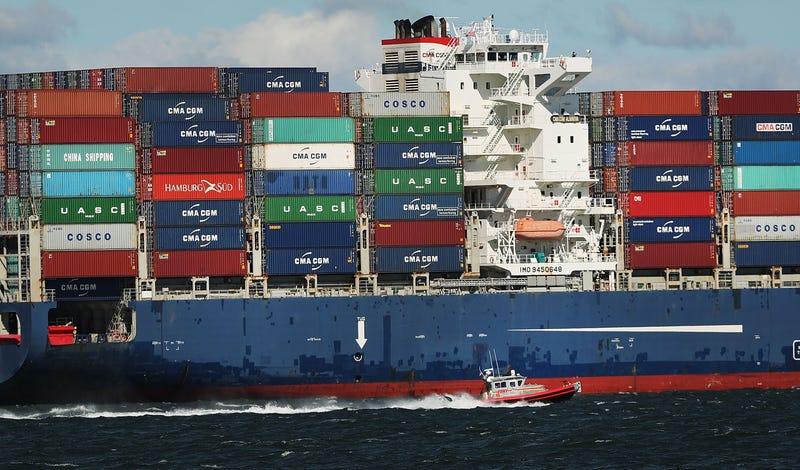
Connecticut economists and an industry group say consumers are likely to face higher prices for imported goods as the result of tariffs that President Trump says the U.S. will enforce starting on Saturday.
Trump, a longtime proponent of the tactic, says he will place 25% tariffs on imports from Canada and Mexico and 10% tariffs on products from China.
Trump has been threatening the tariffs, in an attempt, he says, to ensure greater cooperation from the countries on stopping illegal immigration and the smuggling of chemicals used for fentanyl.
Quinnipiac University economics professor Dr. Mohammad Elahee calls the strategy “mind-boggling” and “baffling.”
While tariffs are generally intended to boost local production, Elahee thinks any potential benefits aren’t worth it:
“It’s a lose/lose proposition for all. It’s not good to benefit the U.S. It’s not going to benefit Canada or Mexico and it will not create new jobs, on the other hand, it will lose jobs.”
The Connecticut Business and Industry Association (CBIA) says Canada and Mexico are primary trade partners for Connecticut. According to CBIA VP of Public Policy Chris Davis, some importers prepared by stocking up on raw material ahead of the tariffs.
Tariff-inflated prices paid by importers for products from dairy to oil to avacados are expected to be passed on to the consumer.
“Tariffs could potentially raise the price on a lot of those consumer goods that our consumers here in Connecticut are paying for,” says Davis, “so you could see potential impacts to inflation… on a number of different goods, especially products like avacados from Mexico.”
Elahee says jobs will be lost due to pressure on the economy from the impact of the tariffs, including the fact that people will buy fewer imported items due to the higher cost:
“(Importers paying more for products) will have to pass it on to the consumer. They will have to raise the price. Consumers will consume less, and when consumers spend less, that has a cascading effect throughout the economy.”
UConn economics professor Steve Lanza believes some importers could go out of business, and exporters will lose sales when other countries reciprocate, slamming U.S. products with their own tariffs.
“The idea of a tariff is supposed to encourage local production,” says Lanza, “but even if it does, we’re going to lose markets for our exporters.”
“This impacts a number of industries, in particular manufacturing,” says Davis. “So, if there’s retaliatory tariffs, it could impact the ability for Connecticut’s companies to compete.”
Material from the Associated Press was used in this report.
